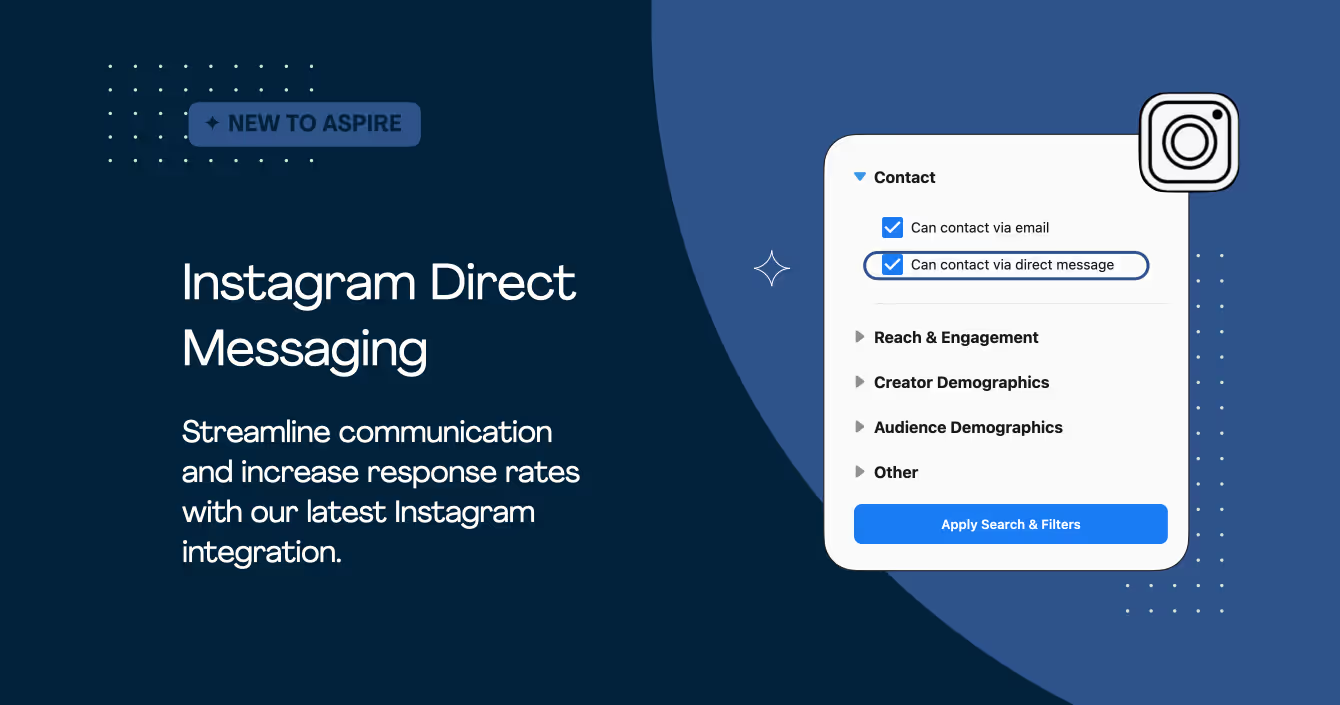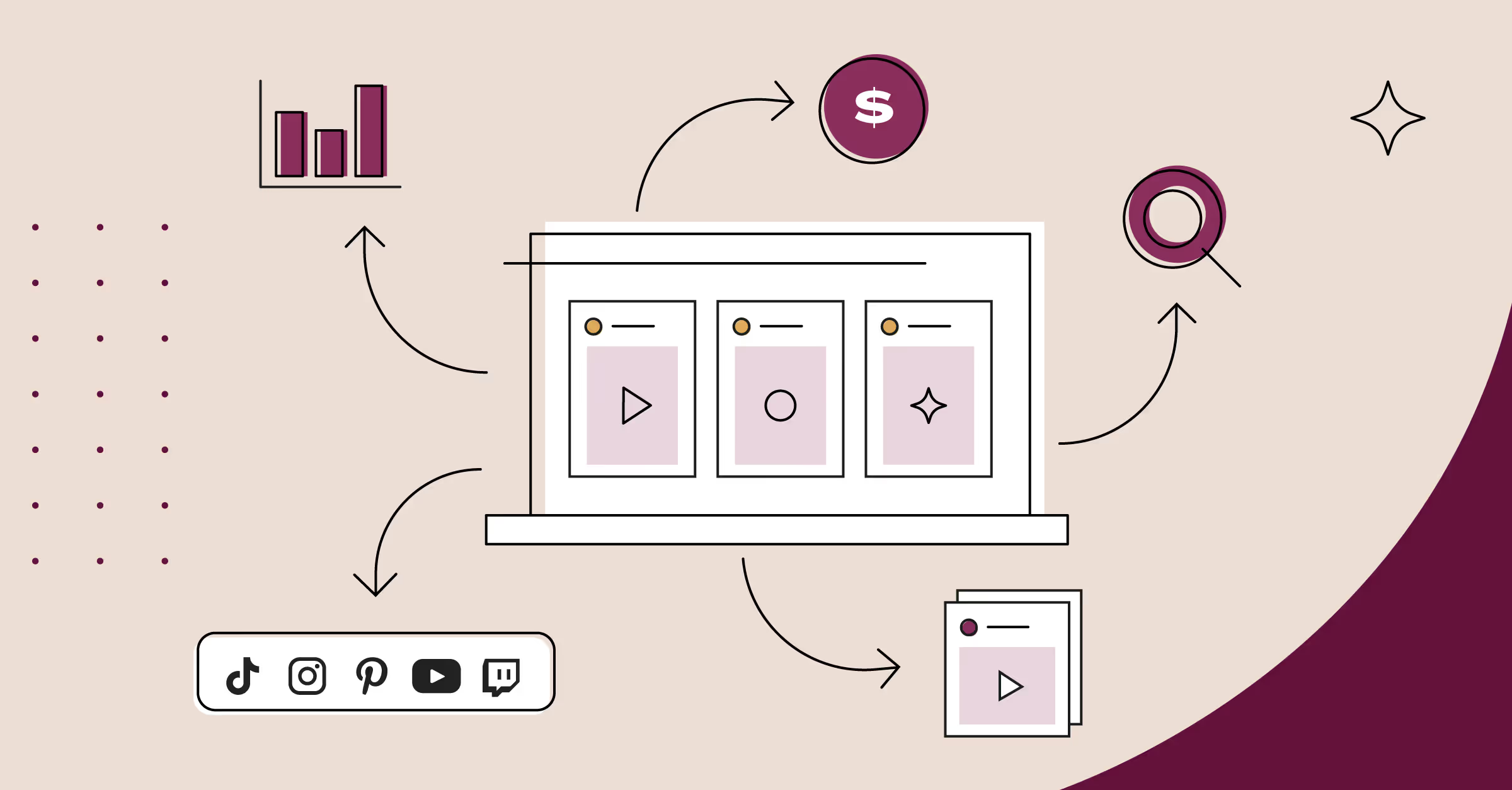11-Step Checklist to Choosing the Right Influencer Marketing Platform
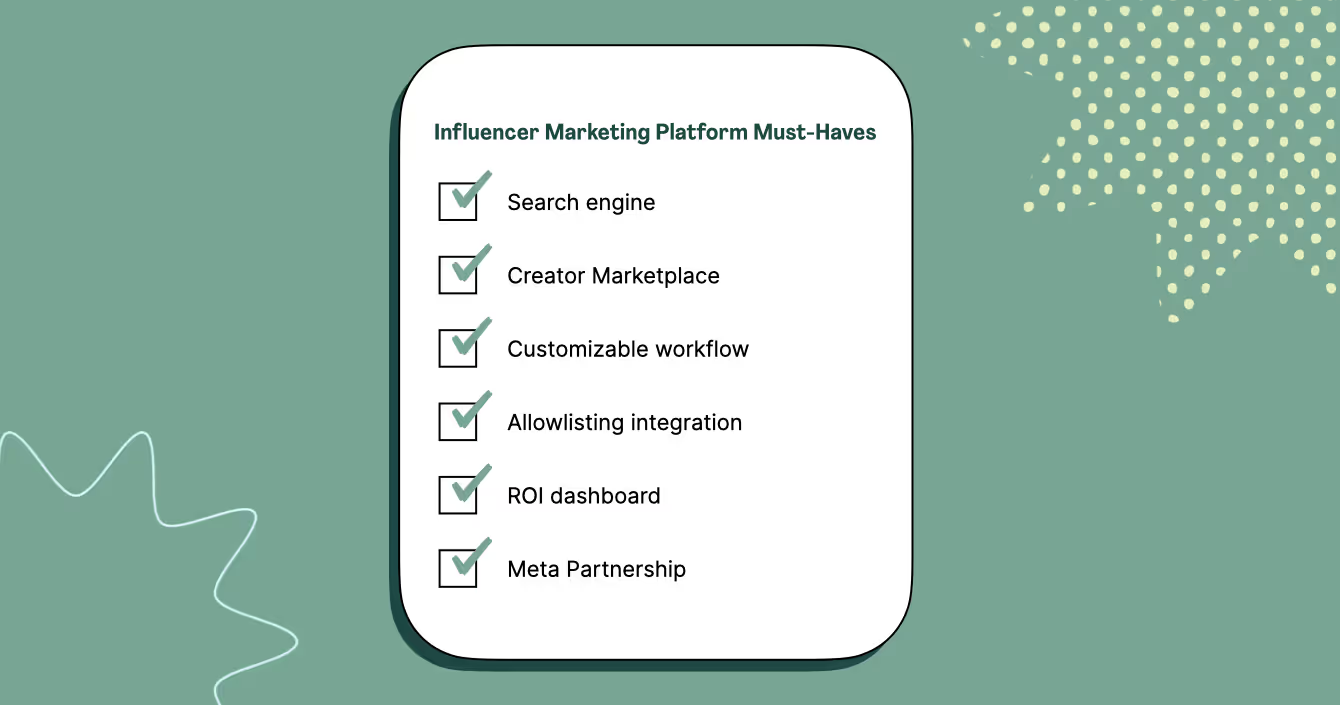
Not all influencer marketing platforms are created equal. To choose the right one, most marketers will need to vet around 5-8 platforms, comparing features and pricing and getting a feel for the team they could potentially work with.
At the highest level, there are 3 areas you will want to consider when choosing a platform to allow you to streamline and scale your influencer marketing campaigns. They are:
- Influencer discovery
- Ongoing relationship & campaign management
- ROI and measurement
In this article, we’ve put together a series of smart questions for you to ask during your vetting process to ensure that you choose a platform that has the right technology to support your brand’s unique influencer marketing goals.
Influencer discovery
First things first, you want to make sure a platform has many strong channels of influencer discovery — beyond just a simple search database. This will allow you to easily find new and exciting creators to work with. Ask these questions to make sure the platform has various avenues to discover well-aligned creators.
1. Do you have an influencer search engine that will allow me to discover all influential creators?
The main objective here is to understand that the platform allows you to search the entire influencer universe across the social channels you operate on, including Instagram, TikTok, YouTube, and Pinterest.
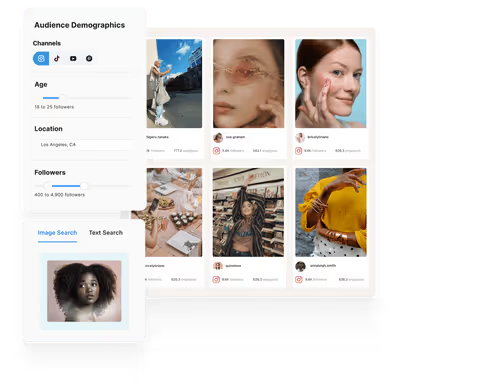
2. Does your search database filter inactive, suspicious, or non-influential people?
While it’s important to be able to search for creators across the entire influencer universe, it’s worth noting that a huge search database isn’t necessarily the best. An extremely large database (i.e. 30 million) typically means that the platform does not filter inactive or low engagement accounts. So, be sure to double check that there are appropriate filters in place.
3. Do you have a creator marketplace?
Say goodbye to ignored DMs. A creator marketplace is a pool of active influencers who are ready to review your brand’s proposals as soon as you publish them. Influencers who already love your brand can also find your campaigns on the marketplace and apply to be a part of them. In other words, platforms that have an opted-in influencer marketplace empower brands to discover and connect with engaged influencers quickly and seamlessly.
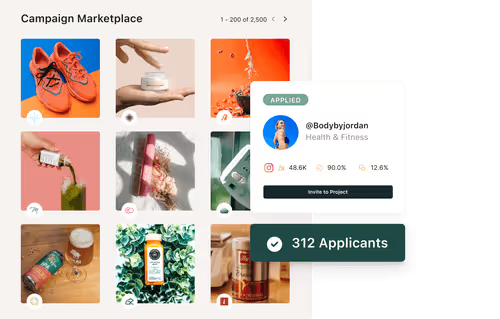
4. Is it possible to integrate with my ecommerce platform to see which of my customers are influencers?
Ecommerce platform integrations with Shopify or Woocommerce will allow you to connect with your customer list to see who already has a large following. Similar to finding brand fans, creating genuine relationships with influential customers is a powerful way to spread the word about your products.

Influencer relationship & campaign management
Every brand runs influencer campaigns in a slightly different way, and for most brands, your influencer campaign strategy will evolve over time. When starting out, most brands want a ton of structure. As time goes on, campaigns tend to get more customized and even evolve into long-term ambassador programs. Because of these nuances — and the ever-changing nature of this industry — you need to invest in a platform that will not only give you structure, but also the flexibility to scale over time. You need a platform that grows and evolves with you and your needs.
Here are the questions you should ask to make sure you’ve got the right tools for managing your influencer marketing campaigns.
5. How robust is your influencer CRM?
To get more specific, ask if you’ll be able to invite and track anyone you want to work with, regardless of whether they have signed up to the influencer platform. Additionally, discuss how easily you can customize data for each person you work with (in any way you want). The platform should act as your central view of all interactions and activations for any influencer relationship.
6. How flexible are your campaign workflows to support my programs as they evolve over time?
You want to make sure that your campaign workflows will evolve with you — not the other way around. Ask if the campaign workflows are completely customizable, even once they are up and running. This is especially important when it comes to creating flexible terms, as some platforms force you to set up a new campaign if you need to edit the terms.
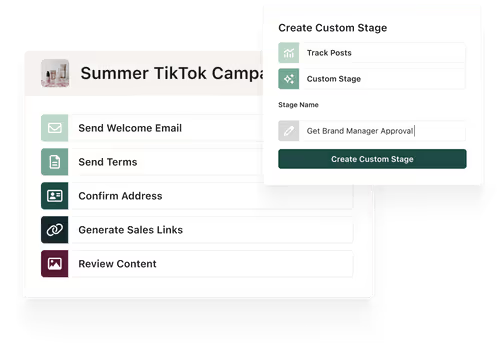
7. Do you integrate with ecommerce platforms to streamline product fulfillment needs?
One of the most important parts of influencer collaborations is sending out products to your brand partners. The best influencer marketing platforms automatically send your creators the products they love with termless campaigns. Look for platforms that have ecommerce integrations with companies like Shopify to handle address collection, product selection, product shipment, and tracking all in one place.
8. Can I run ads through influencer social accounts?
Partnership Ads and influencer allowlisting allow you to create authentic ads directly from your sponsored posts, elevating your influencer partnerships and stretching the impact of your existing influencer-generated content (IGC). Make sure the platform has ad amplification capabilities that streamline the process of getting advertising access to your top influencers’ social accounts. Some platforms may have these capabilities, but charge a premium for you to access the feature. So, be sure to also ask: Is this capability part of the platform, or do I need to pay separately for it?
Additionally, inquire about how easy the ad setup process is for creators. If the process is not streamlined for creators, there will be low engagement and compliance — thereby preventing you from running Partnership Ads at all.

As a bonus, take special note of platforms that have automatic content rights, which will allow you to identify the posts that perform well organically and boost them to a larger targeted audience via paid ads.
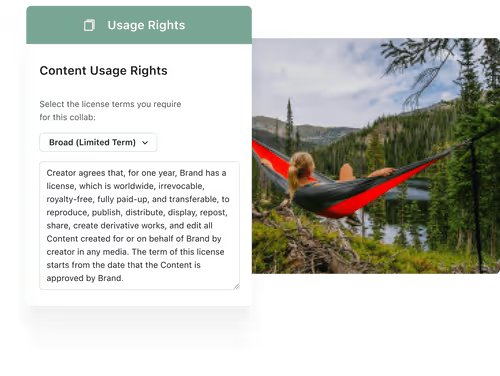
Influencer campaign measurement
To measure the true business impact of influencer marketing on your ecommerce brand, you must be able to track short-term and long-term revenue impact.
Ask these questions to ensure the platform has strong analytics tools.
9. Which social media channels can I track in the analytics dashboards?
It’s important that you can keep tabs on all of the channels that your top influencers appear on, whether that be Instagram, TikTok, YouTube, Pinterest, and so on. Ask to see the platform’s analytics dashboard to make sure the metrics you want to track are visible.
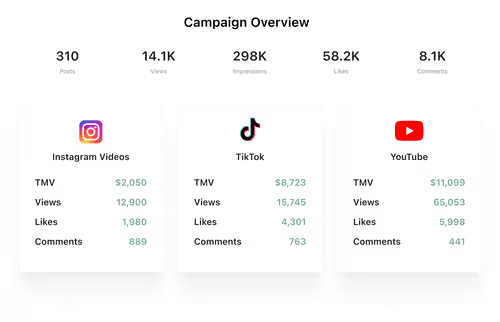
10. How will your platform help me measure long-term and short-term value?
Measuring the impact of your influencer marketing campaigns is dependent on your business goals. For example, if your brand is new to the market, then you’ll want to track the growth of your brand awareness. This requires visibility of engagement metrics like follows, impressions, and mentions over time. If you are a well established brand, you will be in a better position to look solely at direct sales.
Either way, it is important to check that the platform you're working with has clear metrics and strong strategies in place to help you measure both the short-term and long-term impact of influencer marketing on your business.

11. How accurate is your analytics data? Are you integrated with the major social platforms and their APIs?
It’s important to invest in an influencer marketing platform that has an official partnership with major social platforms like Meta, TikTok, and Pinterest. This ensures that the influencer marketing platform pulls in accurate, real-time data straight from the API. Plus, official business partners are often invited to be a part of the alpha and beta testing stages of the social platform’s latest APIs to give feedback and build alongside these social media companies.
For example, as an official Meta Partner, Aspire gained access to their latest Creator Marketplace APIs to be the first to build new features like our Instagram Direct Messaging integration and Instagram Story Social Listening tool.
Beware of platforms that use a tool to scrape data from the web. More often than not, their data is not updated in real-time and generally inaccurate. Double check with the platform that they are fully integrated with the right API. Or, do your own research and look them up in the official Partner Directory.
Thoroughly vet influencer marketing platforms
Choosing the right influencer marketing platform is the first step to success. The right platform will allow you to quickly connect with well-aligned creators, easily manage relationships, and calculate the ROI of your campaigns — all in one place. Ask these 12 questions to find your perfect match.
Want to see Aspire in action? Request a demo here.
